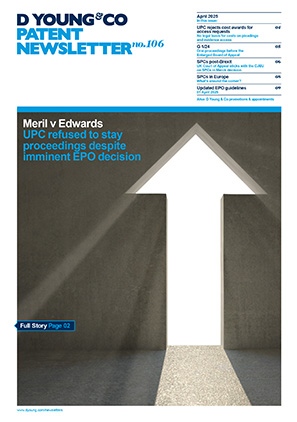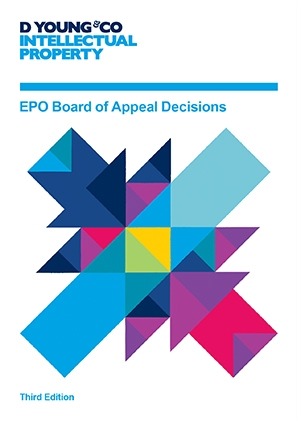For whose eyes only? Disclosure of confidential information in FRAND cases
A standard essential patent (SEP) is a patent with claims that cover an aspect of a technical standard, such that a party who implements the standard will necessarily infringe the SEP. Standard-setting organisations often require the participants in the development of a standard to commit to license their SEPs on “fair, reasonable and non-discriminatory” (FRAND) terms. This allows the participants to protect, and be rewarded for, their technical contribution to the standard, whilst preventing them from using their SEPs to block access to the standard. One way of administering such SEPs is by use of a “patent pool”, in which multiple SEP owners agree to license their SEPs together.
Licensing of SEPs can bring significant revenue for the owner, in particular for standards with wide uptake such as those relating to mobile telecoms. The question of exactly what constitutes a FRAND licence is thus very relevant, and there have been a number of decisions in the past few years centred around this issue. Many of these have been in the telecoms space, but they may well be seen to have wider relevance to patents relating to standards in other technical areas, as practice around standard essential patents in those areas develops further.
Handling commercially sensitive information
In ruling on a FRAND licensing issue, a court must establish what would be FRAND in a given case. This depends on current licensing norms in the relevant industry: there is no one-size-fits-all FRAND licence. In order to establish these norms, a court may need to take evidence on the licensing practice of the litigation parties. For example, in order to establish that given SEP licensing terms are non-discriminatory, it may be necessary to analyse the licensing terms which the SEP owner has agreed with other licensees.
The details of the licensing agreements into which a party has entered can be extremely commercially sensitive. A party who, through patent litigation, obtains access to a competitor’s commercially sensitive information may be placed at an unfair commercial advantage.
However, this must be balanced against the need of parties in litigation to understand the proceedings, including the position of their opponent and the reasoning behind any judgment. One common way of achieving this balance is through the use of “confidentiality clubs”, where certain documents are disclosed only to defined people on behalf of the receiving party, such as named employees or external legal advisors.
Background to present case
Mitsubishi Electric Corporation and Sisvel International SA are members of a patent pool relating to 3G and 4G mobile telecom standards. They sued companies in the OnePlus/Oppo and Xiaomi groups for patent infringement. The patents are alleged to be essential to the standards. Mitsubishi and Sisvel indicated their willingness to grant licences under their standard licensing terms, which they asserted were FRAND. OnePlus/Oppo denied infringement and also denied that the proposed licensing terms were FRAND. A technical trial to determine issues of validity and infringement is scheduled for March 2021. Subject to this trial finding validity and infringement, a subsequent trial to establish FRAND licensing terms is scheduled for October 2021.
Mitsubishi and Sisvel were ordered to disclose any licences which involved any patent in the pool. Because of the commercial sensitivity of these documents, the parties agreed a confidentiality regime involving two confidentiality clubs: an “attorneys’ eyes only” (AEO) club including only lawyers and expert witnesses, and a “highly confidential material” (HCM) club including the AEO members and two named, pre-approved employees of each party.
Mitsubishi and Sisvel disclosed 150 documents, 36 of which they designated AEO. OnePlus/Oppo challenged the AEO designation of six of these documents, and also requested for three of their internal licensing negotiators to be included in the HCM club. Xiaomi challenged the AEO designation of all 36 documents.
An application was made to the court to resolve these issues.
First instance findings
The first instance judge accepted OnePlus/Oppo’s request to de-designate the six documents, on the grounds that their request was “considered and targeted”, and related (with evidence) to the specific documents which they thought necessary to plead their case. However, because of the commercial sensitivity of the documents and the risks to third parties, he ordered OnePlus/Oppo’s HCM club members to undertake to the counterparty(s) of each de-designated licence that they would not participate in licensing negotiations or litigation with that company.
The judge also dismissed OnePlus/Oppo’s request to admit additional members to the HCM club, on the grounds that, amongst other points, “Disclosure to key people who may be involved in commercial negotiations risks causing unnecessary harm”.
He further ordered that any alternative nominees should not be involved with licensing or FRAND litigation with Mitsubishi, Sisvel, counterparties to any disclosed agreements, or other members of the patent pool.
Finally, the first instance judge dismissed Xiaomi’s application to de-designate all 36 documents, on the grounds that Mitsubishi and Sisvel were entitled to make an initial decision as to which documents should be disclosed to Xiaomi employees and which should not.
Appeal
Both OnePlus/Oppo and Xiaomi appealed the first instance decision. OnePlus/Oppo argued that the restriction to the membership of the HCM club interfered with their right to natural justice, and further that the six documents that they wanted their desired new representatives to access were one-way licenses and therefore would not contain any commercially sensitive information about the counterparties. They also requested for a seventh document to be de-designated from AEO to HCM.
Xiaomi argued that the judge had applied the wrong test to determine whether a given document should be designated AEO, and that the correct test should be whether nothing short of an AEO designation was sufficient to protect confidentiality. They thus asserted that the judge had reversed the burden of proof by allowing Mitsubishi and Sisvel to make the initial determination.
As the outcome of the present decision was relevant to the FRAND trial scheduled for October 2021, the Court of Appeal expedited proceedings: after the first instance hearing was handed down on 09 October 2020, the appeals were held before the Court of Appeal on 05 November 2020, from which judgment was handed down on 19 November 2020.
Appeal decision
Both appeals were dismissed.
Regarding OnePlus/Oppo’s appeal, whilst they had requested for their new representatives to be admitted to the HCM club and thus to have access to the large number of associated documents, it had become clear that they were happy to limit the new representatives’ access to the six de-designated documents and one additional document. However, this is not the issue on which the first instance judge had ruled. Furthermore, Mitsubishi and Sisvel had indicated that they would accept a limited disclosure on this basis, subject to some further restrictions to the effect that the new representatives would undertake not to engage in licensing negotiation with the counterparties to the seven documents. The court thus held that the appeal fell away, but that the parties could return to court if Mitsubishi and Sisvel’s proposal did not address the issue.
Regarding Xiaomi’s appeal, the court held that the first instance judge had applied the correct test and taken account of the relevant considerations, and further that the judge had satisfied Xiaomi’s test that nothing short of AEO designation would protect confidentiality. The need for confidentiality would need to be balanced against the need for fairness to the parties, and a staged approach in which the documents were filtered by lawyers and experts to identify the specific relevant ones to de-designate (as was done by OnePlus/Oppo, but not Xiaomi) would have been appropriate. The court further held that the first instance judge had not reversed the burden of proof: Mitsubishi and Sisvel had not been relieved of the obligation to show that the AEO designation was justified.
Comments
This decision may well be appreciated by patentees who are considering litigating in the UK but who had worried that they could be forced to disclose commercially sensitive information to the alleged infringer. In this case, the Court of Appeal has clearly held that whilst an external-eyes-only regime should not be implemented lightly, it is available for sensitive documents where this can be justified. The speed of the case (with less than one month between the first instance decision and the Court of Appeal hearing) also shows how efficiently the UK court system can move when necessary.
Case details at a glance
Jurisdiction: England & Wales
Decision level: Court of Appeal
Parties: Oneplus Technology (Shenzhen) Co Ltd & Ors v Mitsubishi Electric Corporation & Anor
Date: 19 November 2020
Citation: [2020] EWCA Civ 1562

